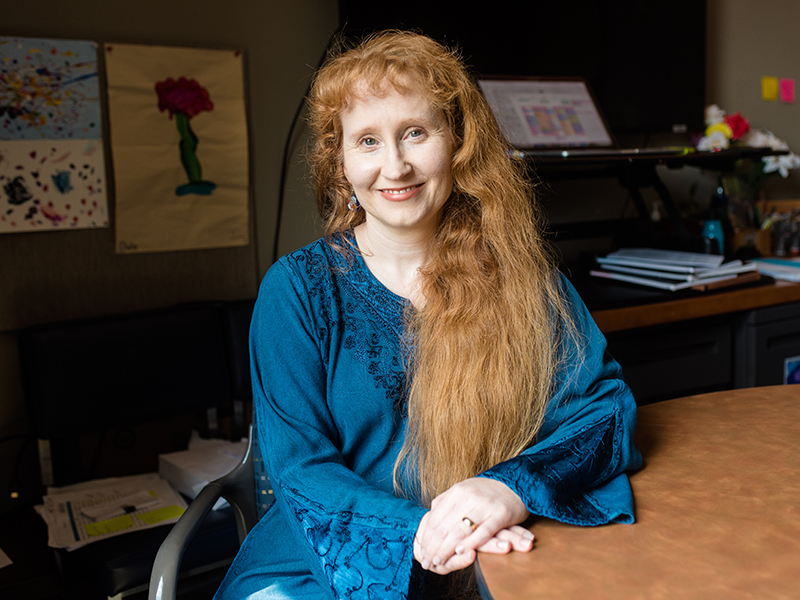Next-Level Breast Reconstruction After Cancer
Texas Engineers are part of a multi-institutional research team designing custom molds for breast cancer patients who undergo reconstructive surgery.
The project, supported by a $2.6 million grant from the National Institutes of Health, is set to make reconstruction more suitable for patients whose reconstructive goals are more complex than reproducing their preoperative appearance, promoting psychosocial adjustment to cancer survivorship and reducing time in care.

Mia Markey, professor in the Cockrell School of Engineering’s Department of Biomedical Engineering
“Appearance changes due to mastectomies take a tremendous mental toll on breast cancer patients who have already been through so much,” said Mia Markey, professor in the Cockrell School of Engineering’s Department of Biomedical Engineering and one of the leaders of the project.
Previous studies have demonstrated the feasibility of using patient-specific molds to shape tissue into a breast form, but rigorous evaluation of their impact remains lacking. This new study includes a randomized controlled clinical trial for evaluation.
During the commonly performed autologous reconstruction, surgeons use skin, fat, blood vessels and muscle from another part of the patient’s body to rebuild the breast. This method is widely recognized as effective, with long-term advantages over other techniques.
However, autologous reconstruction procedures are complex, lengthy operations requiring substantial skill and experience. Plus, a revision procedure is typically required to adequately restore the patient’s bodily form; in some cases, multiple revisions are needed.
The team will develop clinical decision-support algorithms for designing patient-specific breast molds for tissue shaping.
In practice, the new algorithm-driven breast molds should reduce the cost of reconstruction and the pain and risk associated with reconstruction when several procedures are performed.
Prior work investigated simple molds that merely copied the preoperative shape and size of the patient’s breasts, or a mirrored version of the contralateral breast in the case of unilateral breast reconstruction. However, many patients desire or require a different breast form after mastectomy and so simply copying the preoperative breast form is inadequate.
“Our approach in developing the clinical decision-support algorithms is informed by our experience in image perception, machine learning, image processing, and shape modeling and conducting a thorough evaluation in a randomized controlled clinical trial,” said Fatima Merchant, department chair of engineering technology at the University of Houston and one of the project’s leaders.
The Researchers
The research team includes multiple principal investigators: Markey, Merchant and Ashleigh M. Francis at The University of Texas MD Anderson Cancer Center. The team is part of the Multidisciplinary Breast Reconstruction Research Program at MD Anderson.
Investigators at UT include Haoqi Wang, Ph.D. student in the Department of Biomedical Engineering. The MD Anderson team includes Deepti Chopra, Z-Hye Lee, Christopher Parham, Gregory P. Reece, Margaret Roubaud, Mark Schaverien, and John Shuck.
Merchant is supported in this work by UH investigators Ann Chen, research associate professor, HEALTH Research Institute, Weihang Zhu, professor, Department of Engineering Technology, and Elizabeth Rodwell, assistant professor, Department of Information Systems Technology.
